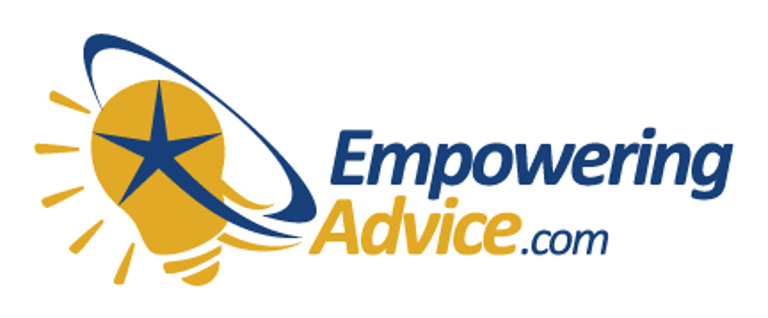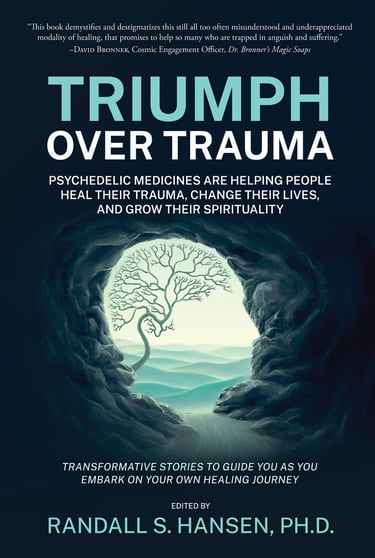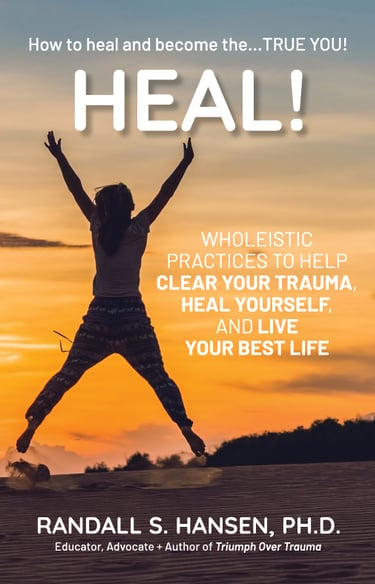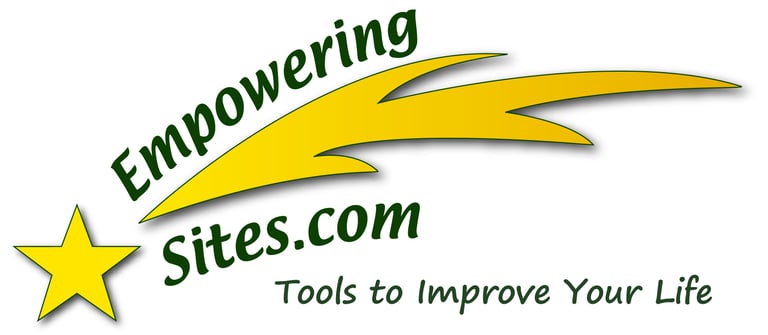Utilizing the Power of Forgiveness
Inspiring Quote: "The weak can never forgive. Forgiveness is the attribute of the strong."--Mahatma Gandhi
When we are traumatized, it can completely upend our lives.
Bullying, abuse, betrayal, sabotage, and crimes against us can lead to deep hurt and anger, guilt and shame, self-abuse, depression, and dangerous behaviors (including addiction). Holding on to that trauma actually can hurt us even more, and cause ongoing damage and despair -- both physically and mentally.
Do you want to heal? If so, forgiveness HAS to be part of your healing journey.
Many of us are actively living with anger and hurt -- either for ourselves or for the people who have hurt us. Our egos are "hurt magnets" that like to tightly hold on to anger and resentment -- but holding onto that pain and anger hurts you more than you realize.
Others of us are living in denial, believing in our resilience to overcome abuse and trauma, all the while partaking in self-destructive thoughts and behaviors.
With this article, I want to plant the seed of forgiveness. First, in forgiving yourself for anything that you've done or was done to you. Second, in forgiving anyone who has unjustly or abused you. Why? Because holding onto anger, resentment, pain, and guilt is like a cancer -- and you need to release it as part of your healing.
Forgiveness is one of those tough ones though, right? We've been wronged, abused, and wounded -- so why should we be the one offering forgiveness? But that's the wrong perspective. The pain of living with unforgiveness can poison your soul and destroy you, so it really becomes your only choice.
Forgiveness is a superpower. Don't believe me? It is much easier to wallow in the pain and anger than to summon the courage and determination to forgive... and forgiveness then allows you to focus on other key aspects of a healing journey. Forgiveness can lead to a kind of peace that allows you to focus on yourself -- and helps you go on with your life.
For me, as a Christian, God commands that we forgive others and extend the grace that we have been shown in the forgiveness of our sins. Luke 6:37 states: "Judge not, and you will not be judged; condemn not, and you will not be condemned; forgive, and you will be forgiven."
Keys to Forgiving Those Who Hurt Us, Including Ourselves
1. Forgive For Yourself. Forgiveness is a gift you are giving to yourself; in fact, the person you're forgiving does not even need to know you have forgiven them. Forgiveness is not weak, it's freeing.
2. Name It, Don't Blame It. The blame-game is a senseless one; we can spend hours going down the blame rabbit hole, when our goal with forgiveness should be to identify it -- and release its hold on us.
3. Take Action to Move On. Reframe your perspective on everything. Move your thinking from victim to survivor; from helpless to empowered. You are strong, you are healing, you are not your trauma.
4. Practice Mindfulness/Gratitude. Changing your focus/perspective from the negative to the positive in your life can help you move forward with forgiveness. We all have things to be grateful for -- and it's good practice to focus on the positive.
5. Compassion & Kindness. Nobody is perfect, and while we like being on our righteous pedestal, it's healthier for us to focus on being compassionate -- and forgiving. So many perpetrators were abused themselves; we know intergenerational abuse and trauma run strong.
Benefits of Forgiveness
When we truly forgive, we can move forward with our lives -- especially as part of a healing journey.
Some possible outcomes from a forgiveness practice:
Greater feelings of happiness, hopefulness, and optimism
Increased sense of safety and inner strength
Improved mental health
Stronger self-esteem
Enhanced energy and focus
Reduced anger and temper
Lowered blood pressure
Diminished anxiety, stress, depression, and hostility
Healthier sleep patterns
Better overall health and well-being
Enriched compassion and empathy
Final Thoughts About Healing -- and Forgiveness
Forgiveness is all about your healing. The other persons do not need to know you have forgiven them; you do not need to contact or confront them... but you do need to sincerely forgive them for their actions. And some people DO confront their abusers and offer forgiveness -- but that decision is totally in your hands.
The key is getting your ego to truly forgive -- yourself and all others.
Forgiveness as part of a healing journey can help you find physical, emotional, and spiritual healing.
Proverbs 10:12 states: "Hatred stirs up strife, but love covers all offenses."
Learn more about a healing journey in this article.
Additional Forgiveness Resources
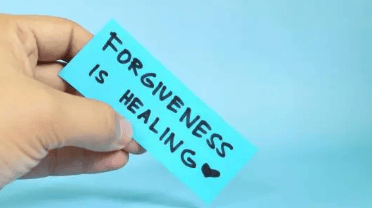

Dr. Randall Hansen is an advocate, educator, mentor, ethicist, and thought-leader... helping the world heal from past trauma. He is founder and CEO of EmpoweringSites.com, a network of empowering and transformative Websites, including EmpoweringAdvice.com.
He is the author of the groundbreaking Triumph Over Trauma: Psychedelic Medicines are Helping People Heal Their Trauma, Change Their Lives, and Grow Their Spirituality and the well-received HEAL! Wholeistic Practices to Help Clear Your Trauma, Heal Yourself, and Live Your Best Life.
Dr. Hansen's focus and advocacy center around true healing ... healing that results in being able to live an authentic life filled with peace, joy, love. Learn more by visiting his personal Website, RandallSHansen.com. You can also check out Dr. Randall Hansen on LinkedIn.
